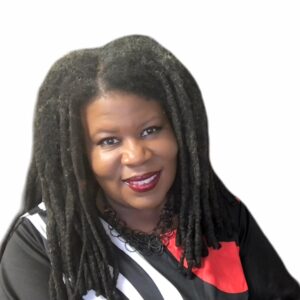‘Planning worship should be enjoyable’
Apr 15, 2024
 The Rev. Dr. Cheryl Lindsay, the UCC’s minister for worship and theology, will lead the Intensive Workshop preceding the 2024 Annual Meeting of the Wisconsin Conference. The workshop, Engaging Worship Planning: Revelation, Response, Resources, will use liturgy, lecture, discussion and reflection to help participants engage the foundational principles of worship, create and curate rituals and resources, and discover and share best practices. Register today. Cheryl also serves as pastor of First Congregational UCC in Wellington, Ohio. In an interview with Wisconsin Conference Life, Cheryl previewed her presentation and talked about the innovations she expects to see in worship in coming years. This interview has been edited for length and clarity.
The Rev. Dr. Cheryl Lindsay, the UCC’s minister for worship and theology, will lead the Intensive Workshop preceding the 2024 Annual Meeting of the Wisconsin Conference. The workshop, Engaging Worship Planning: Revelation, Response, Resources, will use liturgy, lecture, discussion and reflection to help participants engage the foundational principles of worship, create and curate rituals and resources, and discover and share best practices. Register today. Cheryl also serves as pastor of First Congregational UCC in Wellington, Ohio. In an interview with Wisconsin Conference Life, Cheryl previewed her presentation and talked about the innovations she expects to see in worship in coming years. This interview has been edited for length and clarity.
What is at the heart of your presentation to the Conference?
My central message is that planning worship is a communal activity – just as worship is. Worship continues to be the way most people are affiliated formally or informally connect with the faith community. Worship is being engaged in really remarkable ways, and a lot of people are doing innovative things.
If you could magically change one thing about worship today, what would it be?
I would change the expectation of the process and the outcome. Planning worship and worship itself should be enjoyable. Worship is supposed to be joyful and hopeful and expressive. But people are so afraid of doing something wrong, of not being reverent enough. We treat everything as sacred, but most is created by human beings.
What innovations do you expect over the next decade?
A lot of the innovations I see to make worship more inclusive involve the way we invite people with various levels of abilities and disabilities to lead and participate. Also, the way we craft a mutually engaging experience on site and online is really important. There are churches that are really mindful of that. There are some that need direction. Using technology to bridge the difference between those on site and online is something we’ll spend the next few years doing a better job of. It’s not about creating an equal experience. It’s so everyone is seen, heard, acknowledged and prioritized when it makes sense.
What new rituals does the church need today?
That’s what I want to have a conversation about. Sometimes we create liturgies organically – we create a service for Earth Day and plant trees and put some words to it. It’s organic.
Last year I commission a writer for services on Maundy Thursday and Good Friday that I used in my local setting. Foot-washing can be a barrier, so she created a symbolic foot-washing. It was brilliant in its simplicity: She retold the story and poured water into a basin. At various points in telling the story, you dipped a cloth in the water. That was symbolic of foot-washing. At the end, I wrapped my hands in the cloth. People found it very meaningful.
How can worship best create a sense of belonging?
Hospitality is central to worship that is not only inclusive but also authentic to the gospel, and inclusivity begins in the planning. It requires that people feel free to bring themselves to worship. The people doing the planning must represent the diversity you’re trying to serve. We must also provide people space to grow and adapt. The faith community is always shifting – you can have the same group of people, even in a closed, family church, but they change over a lifetime.
We also need to think of worship as extending beyond the formal gathering. How do we embody worship in our daily lives so that we draw people near to the holy — not just on Sunday morning?
The Intensive workshop is scheduled for 10 a.m. to 3 p.m. June 6 at Green Lake Conference Center. Register today.
‹ Back to News & Updates



Sign up for our newsletter!
Find us on
Contact Us